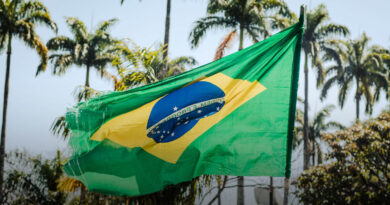Brazil’s Political Issues Hidden By Olympic Success
The 2016 Rio Olympic Games have been over for five weeks now. It’s the one event where the world avoids any conflicts and troubles to truly come together and compete with pride.
And in the two weeks the competition was held, the United States won the medal count by taking home 121 medals—more golds, silvers and bronzes than any other country and the most for the U.S. since the 1984 Los Angeles Summer Olympic Games.
However, despite the success of the games, the host country Brazil had a share of problems and difficulties before, throughout and after the games.
Before the games even began, Brazil was wondering how to pay for the games since it was facing an economic crisis and substantial debt.
And even worse, with the Zika virus spreading in that country like wildfire, the country was battling on that front as well. Not to mention the fact that Dilma Rousseff, Brazil’s first woman president, was suspended from her office duties for administrative misconduct and disregarding the federal budget.
And yet, the current president Michel Temer isn’t much better since he’s under investigation for a Petrobras scandal in which a former head of the company arranged campaign contributions totaling $434,000 USD to Temer’s own party in 2012.
Plus, crime is still alive in the country, especially in the favelas where according to the CBC, most of the crimes are committed by drug dealers and according to NPR, murders increased by 15 percent and robbery by 30 percent compared to last year.
Despite all the troubles and the economic downfall the country continues to experience, the Rio 2016 Games went off without a hitch.
However, I think those problems should’ve been noticed to present a clearer picture of the reality of what Brazil went through for two weeks, instead of just showing the joy in the athletes participating in these games, because that’s what the media likes to do.
In this case, the media showcased the games instead of the problems that Brazilians went through daily, especially in terms of crime. That’s what happens when one event can ignore the world’s problems and struggles and bring nations together to compete for their pride and what they love to do, and represent countries in the most amazing of ways— even if it was for just two weeks.
Brazil should have handled its problems better, but from what we saw, the Rio Olympic Games were much more successful than any of us thought they would ever be, including myself and long-time Olympic viewers. But the media hid the truth away and it needs to know better.




